(The Last Part.….)
Hindu Mela, to be precise, had commenced on the day of Chaitra Sangkranti (last day of the Bengali year), 1867 and with the sole aim to better the fate of Hindus, Bengali Hindus in particular. Though an exhibition displaying everything from national-artwork, handicrafts to cottage industries etc. was organized, what makes it exceptional is the thrust on national unity and need to form a martial prowess. In this regard, a formal committee was also set up on the first day of the Mela. While Sri Ganendranath Tagore became its first secretary and Nabagopal Mitra, the catalyst without a shred of doubt, its assistant secretary. Among others who took active interest in the Mela were Raja Kamal Krishna Bahadur, Sri Girish Chandra Ghosh, Sri Ramanath Tagore, Sri Peary Charan Sarkar, Sri Dwijendranath Tagore and Sri Kristodas Pal. Despite the crude fact that the Hindu Mela met altogether fourteen times between 1867 and 1880, it had a steady death due to later socio-economic developments its central mood can be ascertained can be viewed through – “We do not understand why our correspondent takes exception to the Hindus who certainly form a nation by themselves, and as such a society established by them can very well be called “National Society.” Nabagopal elaborated his view of Hindu Nationalism through his writings. “The principles which promoted nationalism amongst the Greeks was love of country, among the Jew the Mosaic Law, amongst the Romans the love of liberty and renown and amongst the English the love of liberty.” The need to transform effeminate Hindus to a regimented nation surfaced much as well.
A novel notion of Masculine Hinduism took place such that got equated to the need of national independence from the yoke of British Imperialism with the years that passed. The sudden emergence of Swami Vivekananda in 1890s, his everlasting success in America and mantra of valiant nationalism proved to be enough to idealize the young brain and soul to dedicate self for the motherland.
To know Swamiji more, let’s concentrate on this ; We speak of many things parrot-like, but never do them; speaking and not doing has become a habit with us. What is the cause of that? Physical weakness. . . . First of all, our young men must be strong. Religion will come afterwards. Be strong, my young friends; that is my advice to you. You will be nearer to heaven through football than through the study of the Gita. These are bold words; but I have to say them, for I love you. I know where the shoe pinches. I have gained a little experience. You will understand the Gita better with your biceps, your muscles, a little stronger. You will understand the mighty genius and the mighty strength of Krishna better with a little of strong blood in you.” [ Complete Works of Swami Vivekananda 1: 134). This is just to begin with the era when Subhas Chandra Bose was nurtured, attained adulthood and more mature than others to unify his own destiny with that of the motherland. And what’s more, to be precise, the gospel of Netaji can’t be comprehended ever if Swamiji, as referred by Bose himself now and then, or Swami Vivekananda is left untouched.
In 1901, Swamiji had gone to Dhaka for the last time when a few disgruntled youths, namely Sri Hemchandra Ghosh alias Barda (denoted as elder brother by other members of Bengali Volunteers, a revolutionary society based on Swmiji’s burning ideals) in his later teens met him. Hemchandra desired for salvation to which he was not only chastised but also said that a nation under subjugation for almost a millennium is bereft of Dharma. The only way to institute Dharma is to drive the British imperialism back. (Swami Vivekananda – Patriot and Prophet by Dr. Bhupendranath Dutta). The leonine approach led to the growth of an array of revolutionary societies across (then) undivided Bengal; some of them are worth mentioning viz. Anushilan Samiti, Jugantar, Muktisangha, Attonnoti Samiti, Bengal Volunteers and the rest is history. Tens of hundreds of other splinter groups were also in the foray but lost completely almost thanks to weird indifferences cropped up in independent India.
Subhash’s childhood was spent amid this political whirlwind when the latest British expedition to divide undivided Bengal on alleged need of a better administration came along. It remained no secret to even a joe in the streets that the sole motive behind the sinister design was to restrain the spirit of militant nationalism absorbing Bengalis almost by a storm. And there was the rallying cry of nationalist leaders to stand up unitedly against the British oppression…..to make the “settled” decision of Lord Curzon “unsettled”….the fervor determined the gross Bengali psyche and according to many, the Bose family remained no exception to the same.
It is needless to deliberate exploits of Subhash at this juncture,; of his meeting with Sri Benimadhab Das or the Oaten episode at the Presidency College, Calcutta since it has been discussed much and by many by now. So, we might surely proceed to the era of 1920s or of Swarajya Party, under the aegis of Deshbandhu Chittaranjan Das. Deshbandhu did appear as the quintessential example of lapidary in case of Subhash. His rebellious vigor was both comprehended and utilized by Deshbandhu best, especially through Swarajya Party’s miraculous exploitation of constitutional politics braving all oppressions inflicted by the British administration. It has got to be kept in mind, this happened to be the first occasion when the British identified Subhash, his revolutionary zeal alongside brilliance in organizing skills. It was also the time when his camaraderie to Sri Satyaranjan Bakshi, another revolutionary genius and editor of “Forward” maturated. Bakshi happened to be the nephew of famed Hemchandra Ghosh (discussed already) and also had a deep connection to a secret revolutionary group. Frankly speaking, Bakshi happened to be the bridge of Subhash’s inscrutable, cordial relation to assorted revolutionary groups, suffering from an acute crisis of leadership due to the absence of divine troika, namely Autobindo Ghosh, Jatindranath Mukherjee alias Bagha Jatin and certainly, Rashbehari Bose. Subhash had an intense desire to introduce Bakshi to the Congress Working Committee and make him the general secretary of AICC but could not due obstacles of senior most Congress leaders. This was one of deep-seated reasons behind Subhash’s historic resignation from the Congress in the late 1930s.
The ideological split between Subhash camp and that of Gandhi banked on an assortment of factors. While the contradiction between Charkha and Industrialization of future India remained a tough subject, the real reason behind an ideological split in the Congress proved to be otherwise. Through his each approach as the All-India president of Congress it got evident that he was completely against the British endeavor of introducing India to the horrors and privation of World War II. While the Gandhi camp remained clueless on this, Bose had the confidence that any such measure would certainly be the harbinger of utter destruction to the entire nation. Being conscious of British sufferings to the Nazis in the European theater, he determined to exploit the same and snatch the coveted national independence unlike the Gandhian bloc, remaining confident of the fact that British would confer independence on India one the War ends and hence, sitting idle. Hence, there was the historic statement of his, Britain’s Peril is India’s Opportunity.
Thus from the very beginning, especially the Bose period, Congress was split into two ideologically opposite camps. While the Gandhian camp did stand for amalgamation of constitutional and extra-constitutional approaches but entirely counting on British mood along with larger emphasis on agriculture, Charkha and the gospel of non-violence (proved enough to make the entire Hindu nation spineless), Bose camp spoke unambiguously of an uncompromising struggle to put an end to the almost two century-long British Raj in the Indian subcontinent and to do the same, an armed revolution could be the best option. Amid this weird and wonderful, inexplicable climate coupled with political stillness, Congress met at Vitthal Nagar Haripura, an unknown village within Bardoli taluka in the Surat district of the Indian state of Gujarat, between 19 th and 21 st February, 1938. The storm brewing in the offstage got more prominent when the new all-India president of Bose articulated his own intent together with strategies (obscure to only a few and not the Gandhian brigade certainly) in the following words: “My term of office as the Congress President will be devoted to resist the unwanted federal scheme with all the peaceful and legitimate powers, including non-violence and non-cooperation if necessary and to strengthen the country’s determination to resist this scheme.”
The speech was uncanny in every spirit. Never before any Congress president, not even Nehru, known for his left-leaning postures, came out so acutely against the British imperialism, and hence, it proved to be enough for the conservative section of Congress to accept it gladly and for the first time in the history of Congress (till then) the ideological antagonism between the two blocs, conservative headed by Gandhi and the radical led by Bose, came to the streets.
How bitter was the animosity can be comprehended from Sardar Vallabhbhai Patel’s offensive approaches in the following debates.
To quote Mr. Ben Bradley or Benjamin Francis Bradley (1898-1957),communist union leader of Great Britain who was sentenced in the Meerut Conspiracy Trial from the Labour Monthly April 1938, No. 4., “Sardar Vallabhbhai Patel, replying to the debate, appeared to be deliberately provocative. He said that those who moved the amendments did not realise the implications of direct action and added that they had no programme except calling strikes. This brought protests from several parts of the house. Mr. Dutta Majumdar, member Bengal Legislative Assembly, pointed out that the Congress Socialist Party had decided not to move any amendments in order to show a united front. Whereupon Mr. Patel retorted: “Bring any number of reso¬lutions; we are ready to face them. Don’t you try your direct action here. Let me make it clear we have tolerated you for two years, but the time has come when we shall no longer tolerate you. We shall now pay you back in your own coin.” This drew angry shouts from the Congress Socialists and others present.” (retrieved through Marxists.org)
The situation, as found above, was extremely dangerous and the Gandhian briage was in no mood to make any compromises. Gandhi’s subtle designs against Bose attained a new height when Sri Bhogaraju Pattabhi Sitaramayya, backed by the utter silence of Gandhi and his choicest lieutenants namely Sardar Patel, G D Birla, G B Pant and Rajendra Prasad, was fielded against Bose as a candidate in the following Tripuri session of 1939. The result declared on January 29, 1939 projected Subhash as the winner by bagging 1580 votes while Pattabahi had to be contented with 1377 votes. Even if it was a narrow victory but sufficient to portray the fast changing dimension of the political landscape across the nation. The notion of non-violence was giving way to militant activism finally, making the Gandhian brigade wary of the near future.
The following period was orchestrated by narrow, imperious in addition to hawkish designs of the Congress conservatives making Bose finally resign. To be au fait with the reigning mood then, we may focus on Sri Rudrangshu Mukherjee, Indian historian and celebrated author of famed “ Nehru and Bose : Parallel Lives”. Commenting on the time, Sri Mukherjee said: “Gandhi’s reaction to Subhas’s victory was uncharacteristically devoid of grace. In a public statement he said that since he had prevailed upon Sitaramayya not to withdraw from the contest, the latter’s defeat was ‘more mine than his’. Indeed, the maneuver was too costly for the entire nation.
What happened next was nothing but the commencement of true revolutionary, free from anything murky or disdain of constitutional politics. According to his own estimation, Congress was fraught with degeneracy and hence, devoid of any strength to launch the final battle against British. What’s more with each day it passed, Congress was found to concede to the nefarious whims and actions of British government, along with its newly-found friend or the Muslim League.
Despite all these serious challenges, the cordial relation between Bose and varied leading revolutionary figures including Sri Hemchandra Ghosh, Sri Satyaranjan Bakshi, Major Satya Gupta and others remained best. His camaraderie to the widely acclaimed Bengal Volunteers group dated back to 1928 when a group of volunteers during the Calcutta session of Indian National Congress. The group was named Bengal Volunteers Corps; while Major Satya Gupta took the leadership, Subhas Chandra Bose himself was the GOC. After the Calcutta session of the Congress was over, the Bengal Volunteers continued its activities. Soon, it was turned into an active revolutionary association.
Now, with the formation of All India Forward Bloc as the radical, anti-imperialist and mass-based alternative to the Congress, a new vigor got witnessed across Bengal. Rebels belonging to an array of splinter groups across Bengal got united politically and for the first time; the scene was almost same in the rest of India too. Though initially it was planned to retain Forward Bloc within Congress, the decision was withdrawn due to AICC’S hauteur. The party was formed on May 3, 1939 shortly after Bose’s resignation from the presidency of Indian National Congress on April 29 and announced at a public rally held at Calcutta. To begin with the aim of the Forward Bloc was to rally all the leftwing sections within the Congress and develop an alternative leadership inside the Congress.
By the end of June, 1939, constitution and party program got approved while through a communiqué issued on July, 1939, the party’s committee was formally declared. The committee had Bose as its president
Bose became the president of the Forward Bloc and S.S. Cavesheer its vice-president. A Forward Bloc Conference was held in Bombay in the end of June. At that conference the constitution and programme of the Forward Bloc were approved. In July 1939 Subhas Chandra Bose announced the Committee of the Forward Bloc. It had Subhas Chandra Bose as president, while S.S. Cavesheer from Punjab, Lal Shankarlal from Delhi, Pandit B Tripathi and Khurshed Nariman from Bombay were appointed as the vice-president, general secretary and secretaries respectively. Other high up members included Annapurniah from Andhra Pradesh, Senapati Bapat, Hari Vishnu Kamnath from Bombay, Pasumpon U. Muthuralingam Thevar from Tamil Nadu and Sheel Bhadra Yagee from Bihar. Satya Ranjan Bakshi, was appointed as the secretary of the Bengal Provincial Forward Bloc. To augment the saga of struggle a newspaper titled Forward Bloc was also published. Bose travelled the entire country to rally support for the new political experimentation.
(To be continued………)
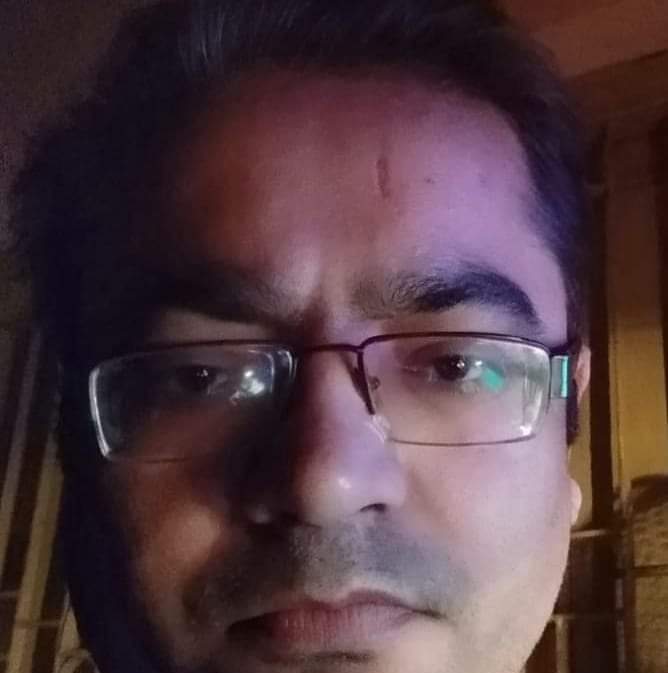
শ্রী অনিমিত্র চক্রবর্তী হলেন একজন সাংবাদিক ও বিভাগীয় লেখক (columnist) এবং বেঙ্গল ভলান্টিয়ার্সের এক সক্রিয় কর্মী।

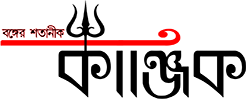
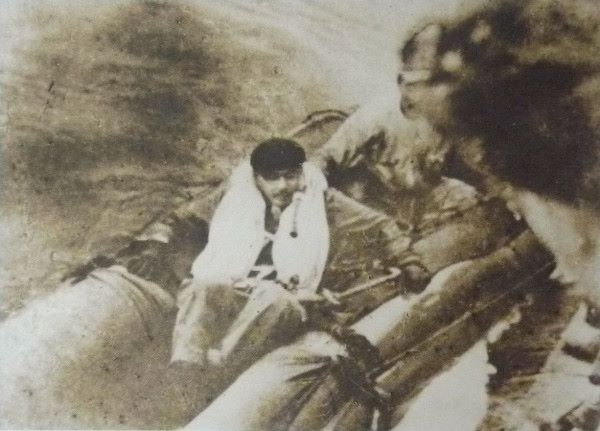
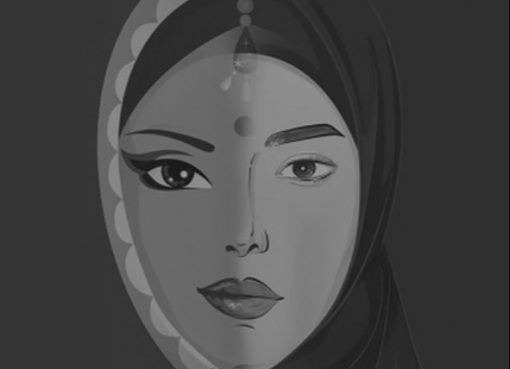
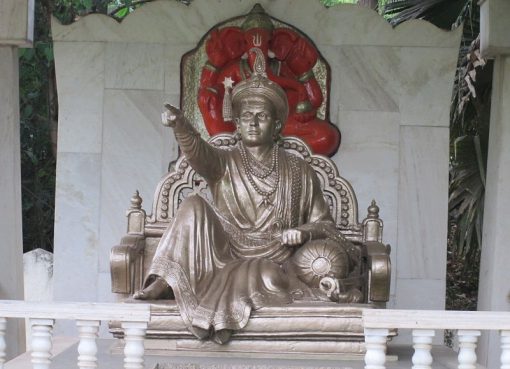
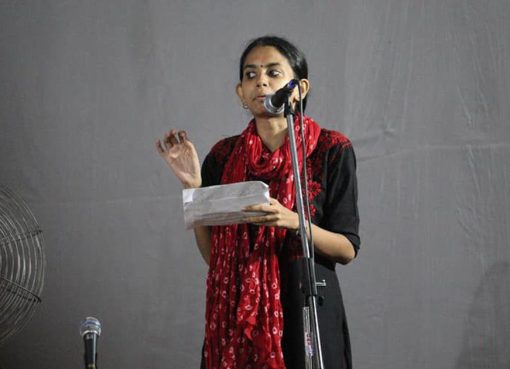
Comment here